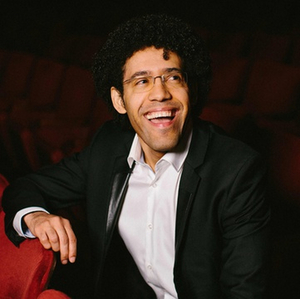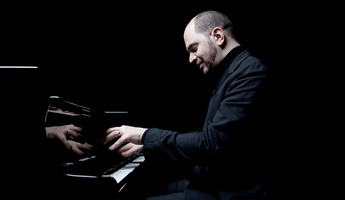Review: RAFAEL PAYARE CONDUCTS BEETHOVEN AND TCHAIKOVSKY at The Jacobs Music Center

Rafael Payare's honeymoon with the San Diego symphony orchestra has barely begun, but I'm ready to predict a long and happy marriage. His energetic and emotional conducting brought unexpected excitement to even an ultra-conservative program of Schumann, Beethoven and Tchaikovsky. The opening Overture to Manfred by Schumann may have been the only piece quite a few regular concert-goers haven't heard often enough to be able to conduct themselves. Composed while Schumann was going through one of his bouts with mental illness, the overture is a stormy brooding affair, with romantic swelling waves of sound, perfectly realized in Payare's interpretation. The orchestra has never sounded better.
Beethoven's first two piano concertos might be mistaken for Mozart's, while the fourth, and especially the fifth, are more clearly breaking away from the Classical era. Kirill Gerstein honored Mozart's legacy in the fourth with cleanly executed rapid runs and trills, and crystalline perfection in quieter moments. But Beethoven's

revolutionary genius was evident as well, especially in the moody second movement and the more bravura moments of the first and third. The orchestra was a superb partner, yielding gracefully when the soloist was in the spotlight and collaborating rather than overwhelming when the piano was sharing passages. Gerstein returned for three curtain calls, but an encore never seemed part of his plan. Nor was the screen for keyboard and soloist closeups that often descends from above center stage.
Speaking of superb, Payare's interpretation of Tchaikovsky's sixth symphony, the "Pathétique," was a reminder of why its popularity has endured. Working without a score, Payare captured the emotional impact of every bar of the composition that Tchaikovsky considered his best. And the emotional range is huge. Sections and soloists responded to Payare with precision, but for a couple of entry notes in the horns that took tiny detours before ringing true. The lapses were minor and redeemed 10 times over with a triumphant third movement.
The gorgeous "Story-of-a-Starry-Night" melody in the first movement was played with great warmth by the violins, and the strings excelled again in the gay waltz of the second movement. The often march-like third featured the ebullient energy of brass and percussion. Many in the audience applauded with delighted enthusiasm, and so did I after that rousing third, unable to resist despite my usual antipathy toward mood-breaking applause between movements. Payare may be even more against it than I am. He cut the audience's reaction short by cueing the fourth movement without a pause. Several woodwind soloists were individual stars in that melancholy final movement. A spontaneous and uninhibited standing ovation brought the concert to a close.
The Symphony's season is just getting started. For schedule and ticket information visit the San Diego Symphony website.
Photos compliments San Diego Symphony.
Reader Reviews

Videos
